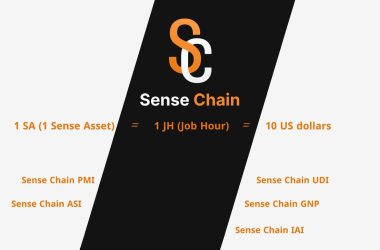In the lead-up to the election, voters have been left with a lack of information regarding how the major political parties plan to fund their proposed spending commitments. According to the Institute for Fiscal Studies (IFS), this has resulted in inadequate details being provided, with the IFS describing the information as “thin gruel.”
The IFS has long been critical of what they refer to as a “conspiracy of silence” from both the Conservatives and Labour in regards to addressing the challenges they have identified, such as reducing NHS waiting lists. In the launch of their report on the crucial documents, IFS director Paul Johnson warned that without an increase in government debt or taxes, significant cuts to public services would be necessary in the next parliament. This is due to the pressure of a 60-year high in government debt levels and a near-record tax burden.
Mr. Johnson also noted the impact of the COVID pandemic and the cost of living crisis following Russia’s invasion of Ukraine, resulting in a growing welfare budget and a £50bn increase in debt interest spending relative to forecasts. He emphasized the need for action in addressing these issues, stating, “We have rising health spending, a defence budget which will likely grow, and the reality of demographic change and the need to transition to net-zero. Add in low growth and the after-effects of the pandemic and energy price crisis, and you have a toxic mix indeed when it comes to the public finances.”
The IFS director expressed disappointment in the lack of attention paid to these pressing matters by the two main parties in their manifestos, calling it a “knowledge vacuum” for voters. He also highlighted their reluctance to address challenges and their failure to provide concrete proposals for increasing taxes. Mr. Johnson pointed out that both parties have refused to consider increasing income tax, NICs (national insurance contributions), VAT, and corporation tax, and have also ruled out other tax options. He also raised concerns about the ambiguity of Labour’s promise to not increase taxes on working people, questioning what this pledge truly means as there is no tax paid exclusively by those who do not work.
The IFS also assessed the tax and spend policies of other parties, determining that the Liberal Democrats have more ambitious plans than Labour or the Conservatives. However, they deemed the proposals of Reform UK and the Greens as “wholly unattainable” and cautioned against their potential to “poison the entire political debate.”
In conclusion, Mr. Johnson stressed the difficulty of the choices ahead and the need for transparency and action. He stated, “The choices in front of us are hard. High taxes, high debt, struggling public services, make them so. Pressures from health, defence, welfare, and aging will not make them easier. That is not a reason to hide the choices or to duck them. Quite the reverse. Yet hidden and ducked they have been.”





